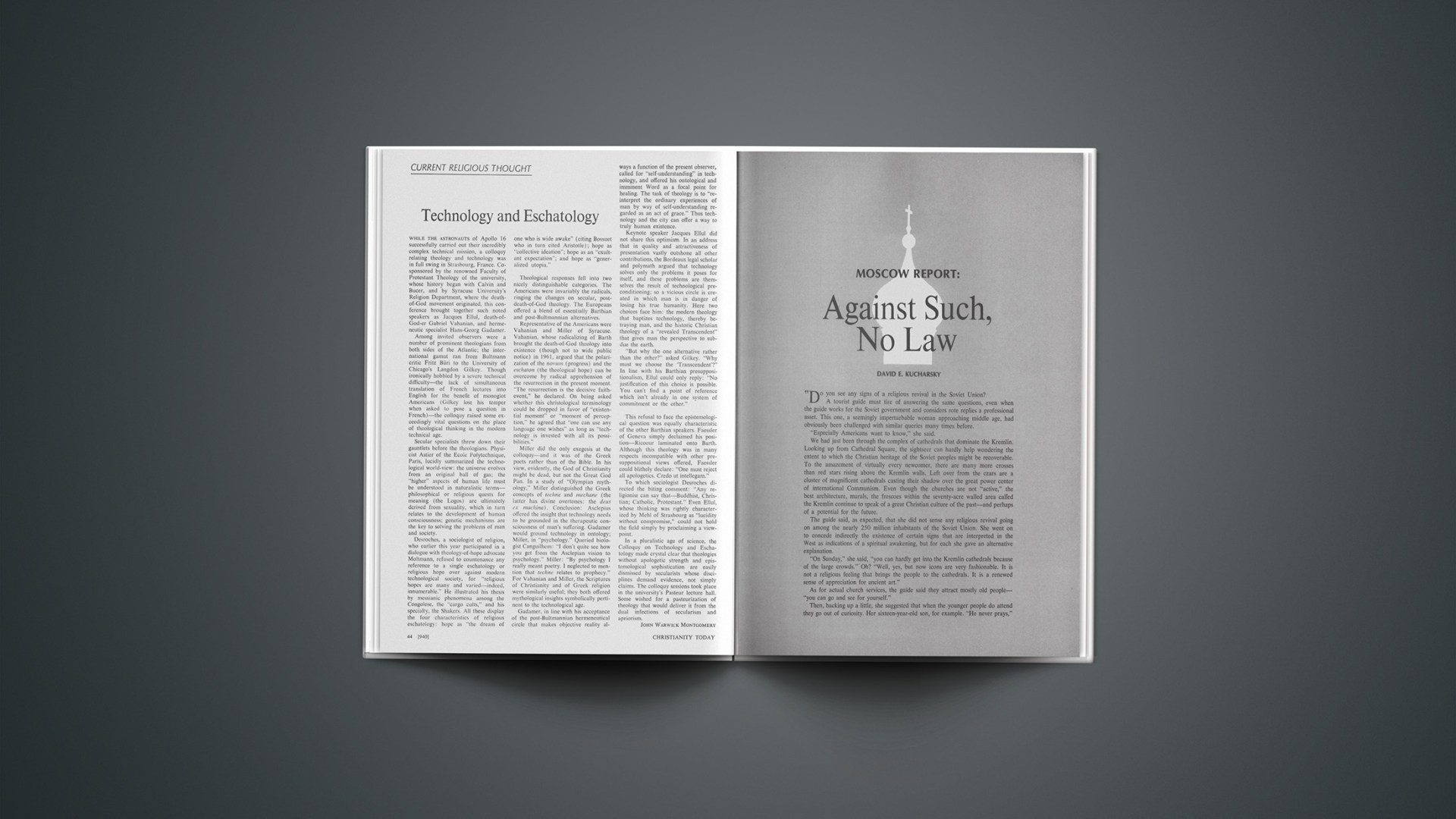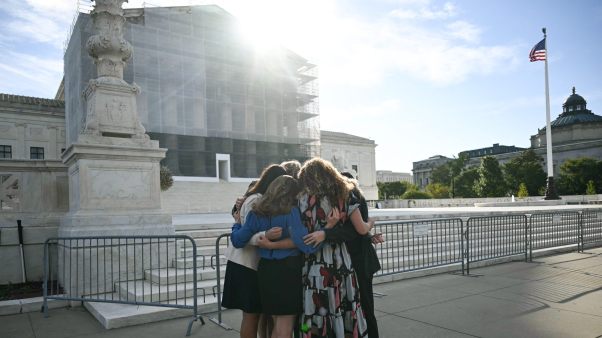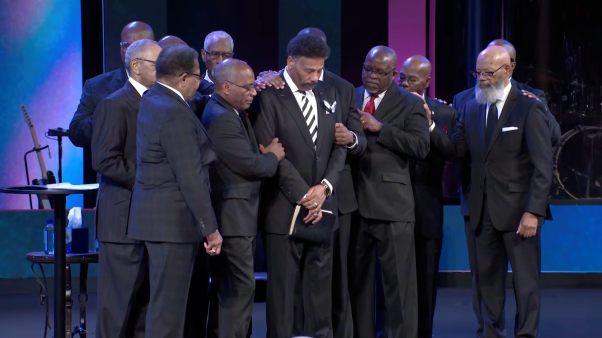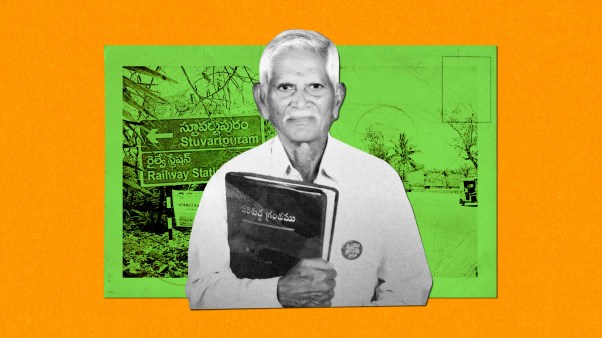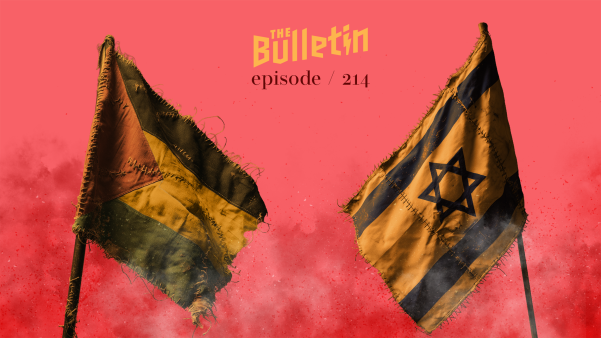While the astronauts of Apollo 16 successfully carried out their incredibly complex technical mission, a colloquy relating theology and technology was in full swing in Strasbourg, France. Cosponsored by the renowned Faculty of Protestant Theology of the university, whose history began with Calvin and Bucer, and by Syracuse University’s Religion Department, where the death-of-God movement originated, this conference brought together such noted speakers as Jacques Ellul, death-of-God-er Gabriel Vahanian, and hermeneutic specialist Hans-Georg Gadamer.
Among invited observers were a number of prominent theologians from both sides of the Atlantic; the international gamut ran from Bultmann critic Fritz Büri to the University of Chicago’s Langdon Gilkey. Though ironically hobbled by a severe technical difficulty—the lack of simultaneous translation of French lectures into English for the benefit of monoglot Americans (Gilkey lost his temper when asked to pose a question in French)—the colloquy raised some exceedingly vital questions on the place of theological thinking in the modern technical age.
Secular specialists threw down their gauntlets before the theologians. Physicist Astier of the Ecole Polytechnique, Paris, lucidly summarized the technological world-view: the universe evolves from an original ball of gas; the “higher” aspects of human life must be understood in naturalistic terms—philosophical or religious quests for meaning (the Logos) are ultimately derived from sexuality, which in turn relates to the development of human consciousness; genetic mechanisms are the key to solving the problems of man and society.
Desroches, a sociologist of religion, who earlier this year participated in a dialogue with theology-of-hope advocate Moltmann, refused to countenance any reference to a single eschatology or religious hope over against modern technological society, for “religious hopes are many and varied—indeed, innumerable.” He illustrated his thesis by messianic phenomena among the Congolese, the “cargo cults,” and his specialty, the Shakers. All these display the four characteristics of religious eschatology: hope as “the dream of one who is wide awake” (citing Bossuet who in turn cited Aristotle); hope as “collective ideation”; hope as an “exultant expectation”; and hope as “generalized utopia.”
Theological responses fell into two nicely distinguishable categories. The Americans were invariably the radicals, ringing the changes on secular, post-death-of-God theology. The Europeans offered a blend of essentially Barthian and post-Bultmannian alternatives.
Representative of the Americans were Vahanian and Miller of Syracuse. Vahanian, whose radicalizing of Barth brought the death-of-God theology into existence (though not to wide public notice) in 1961, argued that the polarization of the novum (progress) and the eschaton (the theological hope) can be overcome by radical apprehension of the resurrection in the present moment. “The resurrection is the decisive faith-event,” he declared. On being asked whether this christological terminology could be dropped in favor of “existential moment” or “moment of perception,” he agreed that “one can use any language one wishes” as long as “technology is invested with all its possibilities.”
Miller did the only exegesis at the colloquy—and it was of the Greek poets rather than of the Bible. In his view, evidently, the God of Christianity might be dead, but not the Great God Pan. In a study of “Olympian mythology,” Miller distinguished the Greek concepts of techne and mechane (the latter has divine overtones: the deus ex machina). Conclusion: Asclepius offered the insight that technology needs to be grounded in the therapeutic consciousness of man’s suffering. Gadamer would ground technology in ontology; Miller, in “psychology.” Queried biologist Canguilhem: “I don’t quite see how you get from the Asclepian vision to psychology.” Miller: “By psychology I really meant poetry. I neglected to mention that techne relates to prophecy.” For Vahanian and Miller, the Scriptures of Christianity and of Greek religion were similarly useful; they both offered mythological insights symbolically pertinent to the technological age.
Gadamer, in line with his acceptance of the post-Bultmannian hermeneutical circle that makes objective reality always a function of the present observer, called for “self-understanding” in technology, and offered his ontological and imminent Word as a focal point for healing. The task of theology is to “reinterpret the ordinary experiences of man by way of self-understanding regarded as an act of grace.” Thus technology and the city can offer a way to truly human existence.
Keynote speaker Jacques Ellul did not share this optimism. In an address that in quality and attractiveness of presentation vastly outshone all other contributions, the Bordeaux legal scholar and polymath argued that technology solves only the problems it poses for itself, and these problems are themselves the result of technological preconditioning; so a vicious circle is created in which man is in danger of losing his true humanity. Here two choices face him: the modern theology that baptizes technology, thereby betraying man, and the historic Christian theology of a “revealed Transcendent” that gives man the perspective to subdue the earth.
“But why the one alternative rather than the other?” asked Gilkey. “Why must we choose the ‘Transcendent’?” In line with his Barthian presuppositionalism, Ellul could only reply: “No justification of this choice is possible. You can’t find a point of reference which isn’t already in one system of commitment or the other.”
This refusal to face the epistemological question was equally characteristic of the other Barthian speakers. Faessler of Geneva simply declaimed his position—Ricoeur laminated onto Barth. Although this theology was in many respects incompatible with other presuppositional views offered, Faessler could blithely declare: “One must reject all apologetics. Credo ut intellegam.”
To which sociologist Desroches directed the biting comment: “Any religionist can say that—Buddhist, Christian; Catholic, Protestant.” Even Ellul, whose thinking was rightly characterized by Mehl of Strasbourg as “lucidity without compromise,” could not hold the field simply by proclaiming a viewpoint.
In a pluralistic age of science, the Colloquy on Technology and Eschatology made crystal clear that theologies without apologetic strength and epistemological sophistication are easily dismissed by secularists whose disciplines demand evidence, not simply claims. The colloquy sessions took place in the university’s Pasteur lecture hall. Some wished for a pasteurization of theology that would deliver it from the dual infections of secularism and apriorism.
JOHN WARWICK MONTGOMERY

